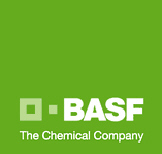|
BASF and Gazprom sign asset swap agreement
BASF subsidiary
Wintershall to increase oil and gas production
and exit gas trading and
storage business
Completion of the transaction expected mid-2014
December 23, 2013 – Today in Moscow, BASF and Gazprom signed the
final agreement to swap assets of equivalent value. Through the swap, the
BASF subsidiary Wintershall will further expand its production of oil and
gas and exit the gas trading and storage business. The completion of the
transaction is expected to take place mid-2014 and will be economically
effective retroactively to April 1, 2013. Sales and earnings of BASF’s
Natural Gas Trading business will continue to be reported in the Oil & Gas
segment until completion. The transaction was approved by the European
Commission at the beginning of December 2013.
Through the
agreement, two additional blocks of the Achimov formation of the Urengoi
natural gas and condensate field in western Siberia will be jointly
developed. Wintershall, a 100% subsidiary of BASF, receives 25% plus one
share of the blocks IV and V in the Achimov formation. According to the
development plan confirmed by the Russian mining authority, blocks IV and
V have total hydrocarbon resources of 274 billion cubic meters of natural
gas and 74 million metric tons of condensate. This is equivalent to a
total of 2.4 billion barrel of oil equivalent. An annual plateau
production of at least 8 billion cubic meters of natural gas is expected
from the two blocks. Start of production is planned for 2016.
In
return, Wintershall will completely transfer the currently jointly
operated natural gas trading and storage business to its long-term partner
Gazprom. This includes the 50% shares in the gas trading companies WINGAS,
WIEH (Wintershall Erdgashandelshaus Berlin) and WIEE (Wintershall
Erdgashandelshaus Zug) including shares in the natural gas storage
facilities in Rehden and Jemgum, Germany, as well as Haidach, Austria, and
the gas storage operator astora. Gazprom will also receive a 50% share in
the activities of Wintershall Noordzee B.V., which is active in the
exploration and production of oil and gas in the southern North Sea
(Netherlands, UK and Denmark). Together these activities contributed about
€10 billion to sales and roughly €500 million to EBITDA of BASF Group in
2012. The partnership in the area of gas transportation activities will
continue unchanged.
“The asset swap will allow us to focus on
profitable growth at the source in our targeted oil and gas-rich regions,”
said Dr. Kurt Bock, Chairman of the Board of Executive Directors of BASF
SE. “Through the joint development of additional blocks in the attractive
Achimov formation, we will further expand our production of natural gas
and condensate with our partner Gazprom.”
The expansion of
activities at the source has already been successful. Since 2000,
Wintershall’s production of crude oil and natural gas has increased from
80 million barrels of oil equivalent (boe) to 126 million boe [1] in 2012.
By 2015, the company plans to increase production to at least 160 million
boe. Especially the production of oil and gas in Russia and the northern
North Sea is to be expanded.
OAO Gazprom is the world’s leading
natural gas company specializing in the exploration, production,
transport, storage, processing and marketing of natural gas and other
hydrocarbons as well as energy generation. Gazprom’s gas reserves are
estimated at 35.1 billion cubic meters, i.e. 72% of Russia’s and 18% of
the world’s gas reserves. Gazprom is responsible for 74% of Russian and
14% of global natural gas production. Gazprom has a 26% share of gas
supplies on the European market and sells gas to over 30 countries.
Further information is available on the Internet at
www.gazprom.com
Wintershall
Holding GmbH , based in Kassel, Germany, is a wholly-owned subsidiary of
BASF in Ludwigshafen. The company has been active in the exploration and
production of crude oil and natural gas for over 80 years. Wintershall
focuses on selected core regions, where the company has built up a high
level of regional and technological expertise. These are Europe, North
Africa, South America, as well as Russia and the Caspian Sea region. In
addition, these operations are complemented by the company’s growing
exploration activities in the Arabian Gulf. Today, the company employs
more than 2,500 staff worldwide from 40 nations and is now Germany’s
largest crude oil and natural gas producer.
BASF is the world’s
leading chemical company: The Chemical Company. Its portfolio ranges from
chemicals, plastics, performance products and crop protection products to
oil and gas. We combine economic success with environmental protection and
social responsibility. Through science and innovation, we enable our
customers in nearly every industry to meet the current and future needs of
society. Our products and solutions contribute to conserving resources,
ensuring nutrition and improving quality of life. We have summed up this
contribution in our corporate purpose: We create chemistry for a
sustainable future. BASF had sales of €72.1 billion in 2012 and more than
110,000 employees as of the end of the year. BASF shares are traded on the
stock exchanges in Frankfurt (BAS), London (BFA) and Zurich (AN). Further
information on BASF is available on the Internet at
www.basf.com
[1] Restated figure
for 2012, adjusted to changes in IFRS 10 and 11. The restated figure
includes 50% of the Libyan onshore oil production
Source BASF: Dr.
Stefanie Wettberg
Source Wintershall: Michael Sasse
2013-12-23
|

Worldwide more than 100,000
paid subscriptions
PennWell
Petroleum Group:
OGJ - Oil & Gas Journal
OGJ_eNewsletter
Offshore Magazine
Offshore eNewsletter
Oil & Gas Financial Journal
Oil, Gas & Petrochem
OGJ Russia
OGJ LatinoAmericana
PennEnergy
PennEnergy-eNewsletter
+ + +
.
PennEnergy
Weekly
Video News
.
+ + +
For more information, media
kits or
sample copies please contact
wilhelms@pennwell.com
www.sicking.de
|


